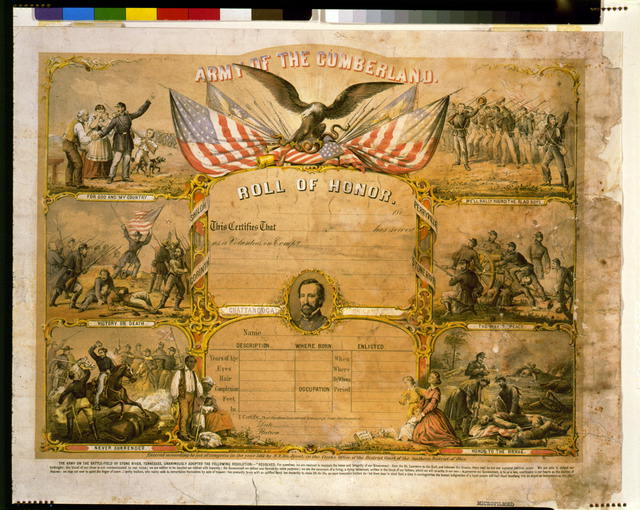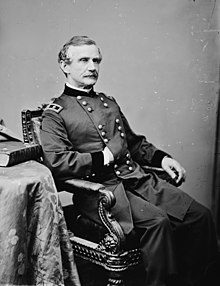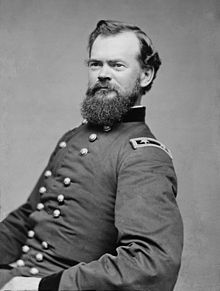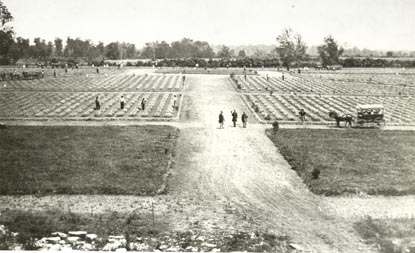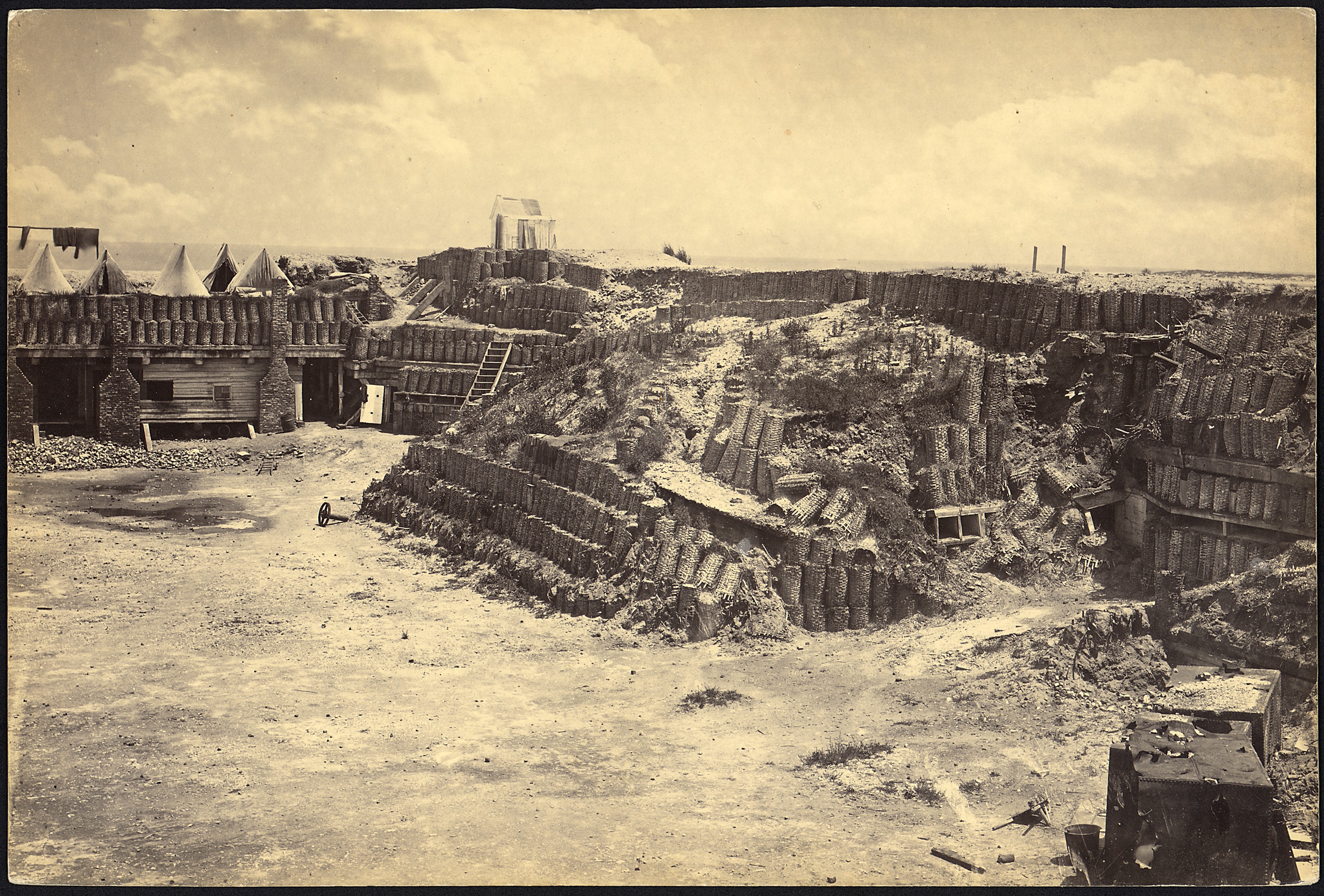 |
| Meems Bottom Bridge Mount Jackson (virginia.org) |
WASHINGTON,
February 15, 1863.
Major General H.W. HALLECK,
Commander-in-Chief, U.S. Army, Washington:
SIR: I have the honor to submit [the following] to you, in accordance
with orders from Major-General Banks, when he left me here, to report to
you any information I might from time to time come into possession of,
regarding the movements of the enemy.
My wife, Catherine Graham, who left Mount Jackson, Shenandoah County,
Virginia, some three weeks since, having arrived here on last Wednesday,
gives me the following account of their strength, &c., in the
region of country which she last passed through. She went from Mount
Jackson to New Market, where General Jones' command is, consisting in
part of three regiments of infantry, two batteries of artillery and a
battalion of cavalry. When she left Mount Jackson, there was but a guard
to regulate the hospitals.
Imboden has command of the cavalry at Harrisonsburg; there are not more than 30 men.
When General Milroy's cavalry went up to Woodstock, they removed the
deposits of banks in Rockingham and Staunton to Lynchburg. At that time a
regiment of cavalry could have captured Staunton without meeting any
resistance.
There were 800 sick in hospital at Mount Jackson; there had been sixteen
cases of small-pox amongst them. Major [Alexander] Baker has charge of
the hospitals; he is a relative of Ashby. At the time of the road, Jones' command had marching orders, they taking
in charge all the movable property of the inhabitants along the line of
the expected advance.
At New Market they buried two pieces of heavy artillery that were gotten
at Harper's Ferry, in Colonel Miles' surrender, they not having any
means of transporting them, as horses are getting very scarce, any kind
of a horse being worth from $300 to $500.
She came through the following posts in her passage, which, from the
time she remained in them, she availed herself of all the privileges of a
pass which she got through the influence of a clergyman, with whom she
was acquainted. New Market, Jones and Imboden, say 1,500 men;
Harrisonsburg, 30 men; Mount Crawford, none; Staunton, about 300, under
command of Colonel Michael [G.] Harman; Waynesborough; about 25;
Charlottesville, a very few (there are a great many fine hospitals, some
fifteen); Gordonsville and Culpeper, 1,500; Mechanicsburg, none. In
Richmond she remained four days, during which time she saw very few. Was
told they are all gone, except what were doing garrison duty around in
the works they had and were erecting; the main force having gone to
North Carolina, and some 25,000 or 30,000 at Fredericksburg.
She intended to come by Fort Monroe, but was not allowed to come that
way, so she had to go by way of Gordonsville, Culpeper, Woodville,
Sperryville and Little Washington (there are no troops at either of
last-named places or no pickets, but a few guerrillas); thence to
Piedmont; thence to New Berlin, on Baltimore and Ohio Railroad, arriving
in Baltimore. On her trip from Culpeper she was accompanied by two
rebel spies, as she thinks from their actions, conversation, &c.
They came across and took the cars with her and put up at the Fountain
House in Baltimore. They called themselves Mrs. Kelley and Mrs. Kenedy,
the former being from Culpeper, the latter from Staunton. Their room was
27. I believe they are there yet. They registered as from Leesburg and
Kentucky. They told my wife to address a letter for them to Armstrong
& Carter [Cator?], Baltimore.
She also met on her journey here a large number of Jews and others that
had been over here after goods and information, they being considered
the shrewdest in getting information, as they are in large with some of
the same class in Baltimore, if not all of them; they dividing the
profits, which are immense, as you see from a list of the necessaries of
life that I mention: quinine, $100 an ounce; thread; 75 cents a spool;
silk, 25 cents a skein; $25 for a pair of women's gaiters, while others
are engaged in buying up Treasury notes and getting them exchanged for
told in Baltimore. Some of them cross between Poolesville and Berlin,
others between Harper's Ferry and Martinsburg at Shepherdstown, while
others go up on the cars and get out at New Creek and other places. They have their places of meeting on the other side. They
get caught occasionally, but always get off by bringing the guards. They
report to Major Richardson at Gordonsville. Others get from Grafton to
Staunton . A great number of teams make their way that way to Staunton.
The people everywhere and soldiers except peace shortly, for, they say,
various reason; some say from dissensions among parties, others again
other thoughts, but they help to keep them up it spirits. Others [think]
that the Secretary will be turned out of the Cabinet, and [say] that would
be better than 100,000 men killed.
I find in my travels through Pennsylvania that there are a great number
of deserters all through the whole State, as well as an immense lot of
Government property carried home by those deserters, sutlers, and
others. Almost every man in the country has a rifle, saddle, or
something else belonging to the Government.
I have the honor to remain, your most obedient servant,
MICHAEL GRAHAM,
Of General Banks' Secret Service.
P. S.-If you would grant me an interview, I would like it much, as I
could inform you of a great many things that I cannot write about.
[Indorsement.]
FEBRUARY 17, 1863.
Respectfully referred to General Schenck for his information, to be returned.
H. W. HALLECK,
General-in-Chief.
Official Records, Series I., Vol. 25, Part 2, Page 81.
Graham was a merchant from Ireland who came to Mount Jackson in 1860 and bought the Central Hotel there. He also held the contract as the war started to build the Manassas Gap Rail Road from Mount Jackson to Harrisonburg, but the advent of the war stopped the project. To avoid being drafted into Confederate service he gathered hay and bought horses for sale to the Confederates. But he discouraged his laborers from enlisting, which placed him under suspicion, which only deepened when he became closely aligned with Banks and Fremont. He spent the rest of the war working as a scout for various Union generals, his wife being placed for a time under house arrest for his activities. Graham's report is chiefly interesting for the details it provides of the effect of the war on the Valley economy and the rampant inflation it caused. There is within it also the strain of antisemitism which permeates so many war time accounts. (Information on Graham comes from "Shenandoah County in the Civil War-Four Dark Years" by Hal Sharpe.









